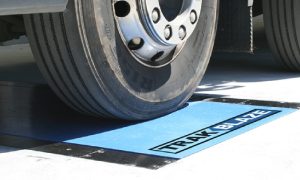Singapore Tyre Change: Your Complete Guide to Services and Costs
When your vehicle requires immediate attention, finding a reliable tyre change service becomes paramount to maintaining both safety and mobility on Singapore’s bustling roads. The small island nation’s unique driving conditions, from humid tropical weather to heavy urban traffic, place extraordinary demands on vehicle tyres that few other environments can match.
The Critical Importance of Professional Tyre Services
Singapore’s automotive landscape presents distinct challenges that make professional tyre maintenance not merely advisable but essential. The combination of year-round heat, frequent rainfall, and stop-and-go traffic creates a perfect storm for accelerated tyre wear. Consider the daily reality: temperatures consistently hover above 30°C, roads become slick during sudden downpours, and the average vehicle spends considerable time idling in congested areas.
Professional tyre replacement services understand these local conditions intimately. They recognise that what works in temperate climates may prove inadequate for Singapore’s demanding environment. The expertise extends beyond simple installation; it encompasses understanding how different rubber compounds respond to tropical conditions and which tread patterns provide optimal performance during monsoon seasons.
Understanding Singapore’s Tyre Service Landscape
The tyre service industry in Singapore operates within a highly regulated framework that prioritises safety and environmental responsibility. Service providers must adhere to strict guidelines regarding:
-
Proper disposal of old tyres through authorised recycling channels
-
Certification requirements for technicians handling wheel alignment and balancing
-
Quality standards for imported tyres meeting local safety regulations
-
Environmental compliance for workshops and service centres
This regulatory environment, whilst sometimes increasing operational costs, ultimately benefits consumers by ensuring consistent service quality and safety standards across the industry.
Factors Influencing Service Quality and Pricing
Several interconnected factors determine both the quality of tyre services and their associated costs in Singapore. Location plays a crucial role; service centres in prime areas naturally command higher prices due to elevated rental costs, whilst those in industrial estates may offer more competitive rates without compromising on service quality.
The complexity of modern vehicles also affects service provision. Today’s cars feature increasingly sophisticated systems: electronic stability control, advanced driver assistance systems, and complex wheel monitoring technologies. These innovations require technicians with specialised training and expensive diagnostic equipment, factors that inevitably influence pricing structures.
“The modern tyre change isn’t simply about removing four bolts and fitting new rubber,” explains one veteran technician. “Today’s vehicles require precise calibration and understanding of integrated systems that didn’t exist even five years ago.”
Mobile Services: The Changing Paradigm
The emergence of mobile tyre fitting services represents perhaps the most significant innovation in Singapore’s automotive service sector. These services bring professional equipment directly to customers’ locations, whether at home, office, or roadside during emergencies.
Mobile services offer several advantages:
-
Elimination of travel time and inconvenience
-
Reduced risk of driving on compromised tyres to service centres
-
Flexible scheduling that accommodates busy lifestyles
-
Often competitive pricing due to lower overhead costs
However, mobile services also face limitations. Complex wheel alignment issues may require specialised equipment available only at established workshops. Additionally, mobile operators must navigate parking restrictions and work within time constraints that stationary facilities don’t encounter.
Seasonal Considerations and Maintenance
Singapore’s climate, whilst consistent year-round, still presents seasonal variations that affect tyre performance and longevity. The northeast monsoon brings increased rainfall, making tread depth and pattern crucial for safety. During drier periods, road surface temperatures can exceed 60°C, placing additional stress on rubber compounds.
Regular rotation and maintenance become even more critical in this environment. Professional services recommend inspection schedules adapted to local conditions, often suggesting more frequent checks than manufacturers’ general guidelines anticipate.
Technology Integration in Modern Services
Contemporary tyre services increasingly incorporate advanced technology to enhance accuracy and customer experience. Digital pressure monitoring, computerised wheel balancing, and laser-guided alignment systems have become standard equipment at reputable establishments.
These technological investments require substantial capital outlays, which service providers must recoup through their pricing structures. However, the resulting precision and efficiency often justify the costs through improved tyre longevity and enhanced vehicle performance.
Environmental Responsibility and Sustainability
Singapore’s commitment to environmental sustainability extends into the automotive service sector. The National Environment Agency maintains strict guidelines for tyre disposal, requiring service providers to participate in approved recycling programmes.
This environmental focus influences both service delivery and costs. Responsible disposal isn’t merely a regulatory requirement; it represents a genuine commitment to sustainability that many Singaporean consumers actively support, even when it affects pricing.
Making Informed Service Decisions
The key to obtaining optimal value lies in understanding the relationship between service quality, convenience, and cost. Consumers must weigh immediate savings against long-term value, considering factors such as service warranties, technician expertise, and equipment quality.
Price comparison alone rarely provides a complete picture. The cheapest option may prove expensive if it results in premature tyre failure or inadequate installation. Conversely, premium services should demonstrate clear value through superior materials, extended warranties, or enhanced convenience.
As Singapore’s automotive sector continues evolving, consumers benefit from increased competition and service innovation. Understanding these market dynamics enables informed decision-making when evaluating tyre price Singapore options across the island’s diverse service landscape.




